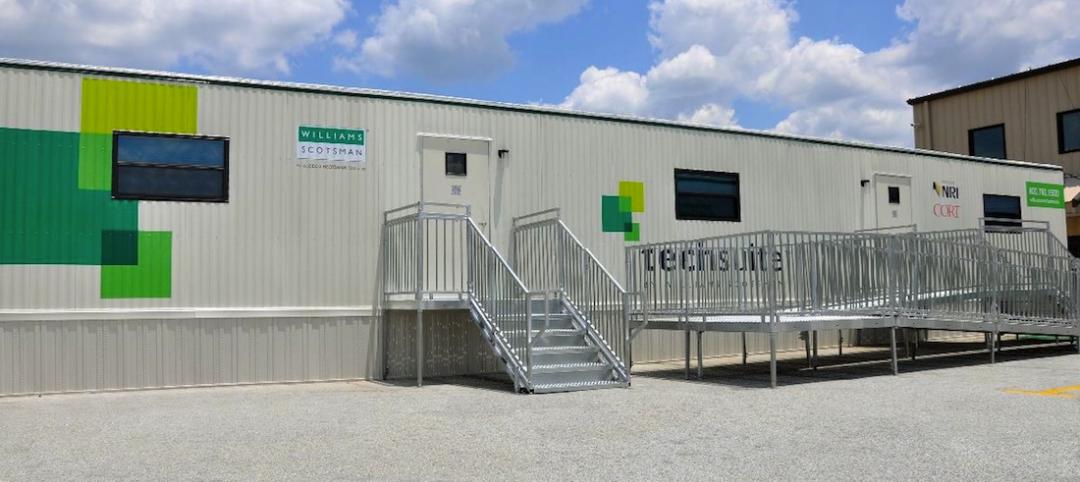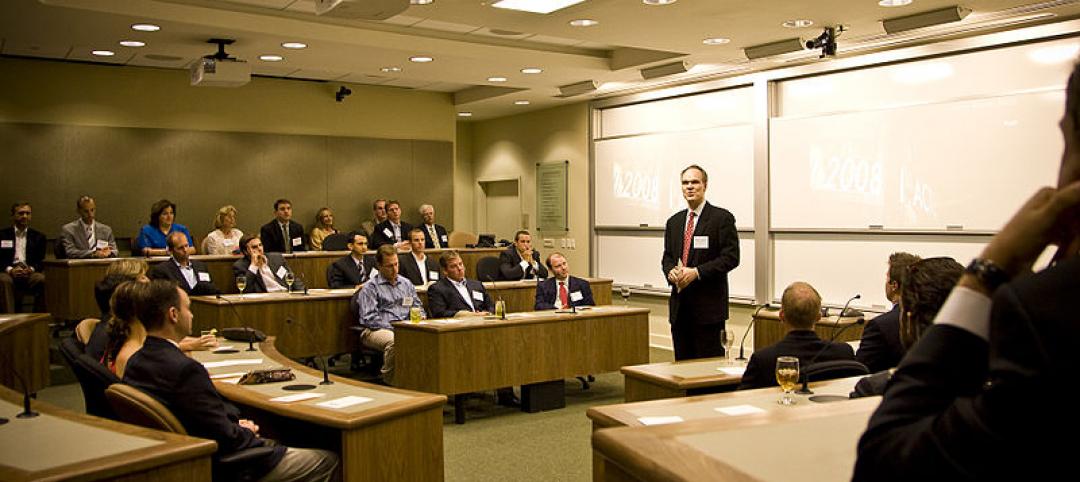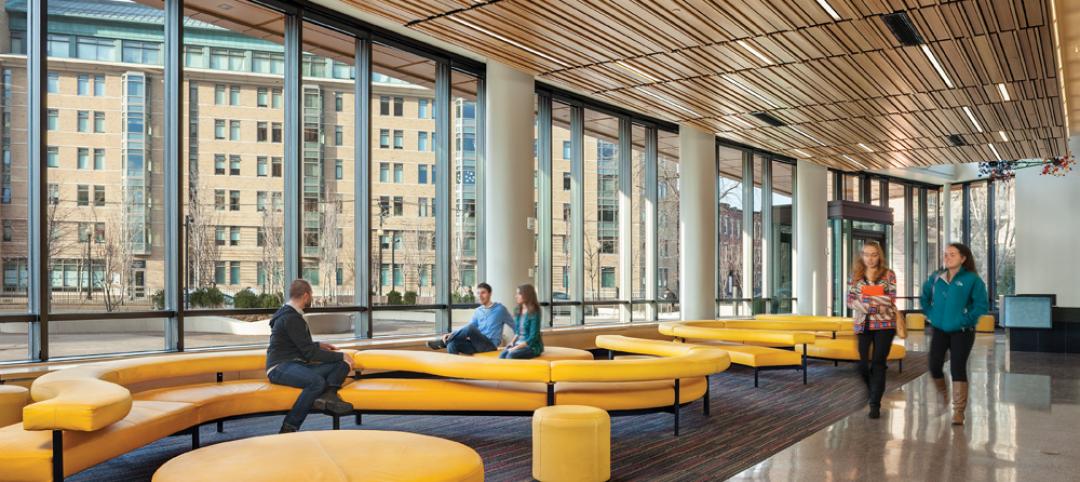The U.S. Department of Energy (DOE) and U.S. Department of Commerce announced selections for three Centers for Building Operations Excellence that will receive a total of $1.3 million to create and deploy programs aimed at training and expanding current and incoming building operators. The centers are part of the Obama administration’s Better Buildings Initiative, which is working to improve the energy efficiency of America’s commercial buildings 20 percent by 2020, with the potential to reduce American business’ energy bills by approximately $40 billion per year.
“Improving energy efficiency in business and manufacturing is critical for helping American businesses keep costs down and stay competitive in the global economy,” said Secretary of Energy Steven Chu. “The first step is ensuring we have well-trained buildings and facilities operators that know how to boost building performance and keep commercial facilities from wasting energy.”
The three Centers for Building Operations Excellence will work with universities, local community and technical colleges, trade associations, and the Energy Department’s national laboratories to build training programs that provide commercial building professionals with the critical skills they need to optimize building efficiency while reducing energy waste and saving money. The DOE and Commerce’s National Institute of Standards and Technologies’ Manufacturing Extension Partnership (NIST MEP) are jointly funding the centers.
“These federal grants are an example of the Obama administration’s commitment to investing in cutting-edge, job-creating technologies that save money and improve energy efficiency as part of an all-of-the above approach to American energy,” said Acting Commerce Secretary Rebecca Blank. “These centers will help ensure that American workers have the skills they need to remain globally competitive in a 21st century economy.”
The Centers for Building Operations Excellence, chosen through a competitive grants process, utilize multi-organization partnerships and support from local and state governments. The selected centers are:
· The Corporation for Manufacturing Excellence in California, partnering with Laney College and the International Union of Operating Engineers Local 39;
· Delaware Valley Industrial Resource Center in Pennsylvania, partnering with Pennsylvania State University, Pennsylvania College of Technology, and Drexel University; and
· New York State Department of Economic Development in New York, partnering with City University of New York and Rochester Institute of Technology.
The Better Buildings Initiative program creates opportunities for current and future facilities staff of all levels to obtain valuable skills that support a clean energy economy. Specifically, the funding announced today will help the three centers develop curricula and pilot training programs for building operators, managers, and energy service providers, focusing on building re-tuning, energy management, and building operations in commercial, industrial, and educational buildings. The training will outline steps building operators can take to reduce energy consumption, save money and drive continuous improvement in a broad range of commercial buildings.
To learn more about the Better Buildings Initiative, visit http://www1.eere.energy.gov/buildings/betterbuildings/. To learn more about NIST MEP’s work to support manufacturers nationwide, visit www.nist.gov/mep.
Related Stories
Sponsored | | Nov 12, 2014
Williams Scotsman plugs into the jobsite
Many of our customers conduct important business from their temporary modular jobsite office and most require access to technology to get their job done effectively and efficiently. SPONSORED CONTENT
| Nov 12, 2014
Chesapeake Bay Foundation completes uber-green Brock Environmental Center, targets Living Building certification
More than a decade after opening its groundbreaking Philip Merrill Environmental Center, the group is back at it with a structure designed to be net-zero water, net-zero energy, and net-zero waste.
| Nov 12, 2014
Designs by three finalists for new Beethoven concert hall unveiled
David Chipperfield and Valentiny are among the finalists for a new concert hall being built to commemorate Beethoven’s 250th birthday in his hometown of Bonn, Germany.
| Nov 12, 2014
Forbes: Houston is America's #1 construction hotspot
A new list of America's 20 biggest boomtowns shows Houston on top, with New York City close behind, followed by Dallas, Washington, D.C., and Los Angeles.
| Nov 11, 2014
Renzo Piano's third building at London Bridge Quarter approved, will be built adjacent to the Shard
Renzo Piano Building Workshop has been granted planning approval for its residential building at London Bridge Quarter—a 26-story apartment tower dubbed Feilden House.
| Nov 10, 2014
5 guiding principles for solving airflow issues in open-plenum office spaces
Although architecturally appealing, exposed ceilings can create unwanted drafts and airflow problems if not engineered correctly. McGuire Engineers' Bill Stangeland offers tips for avoiding airflow issues on these projects.
| Nov 10, 2014
Clemson, Parsons architecture education programs honored for innovation, long-term impact
The architecture programs at Parsons The New School for Design and Clemson University have been selected as 2014 NCARB Award recipients for developing innovative curricula that merge practice and education.
| Nov 10, 2014
Herzog & De Meuron unveils plan for National Library of Israel
The library’s new home will be a completely new building in Jerusalem, and will combine the functions of a central research center, a venue for indoor and outdoor cultural and educational activities, and a place for digital experience.
| Nov 10, 2014
Hotel construction pipeline hits five-year high
The hotel construction pipeline hit a five-year high in the third quarter, clocking in at 3,516 projects and 443,936 rooms, Lodging Econometrics reports.
| Nov 7, 2014
Arts college uses creative financing to build 493-bed student housing
Many states have cut back funding for higher education in recent years, and securing money for new housing has been tougher than ever for many colleges and universities. A recent residence hall project in Boston involving three colleges provides an inspiring example of how necessity can spawn invention in financing strategies.
















